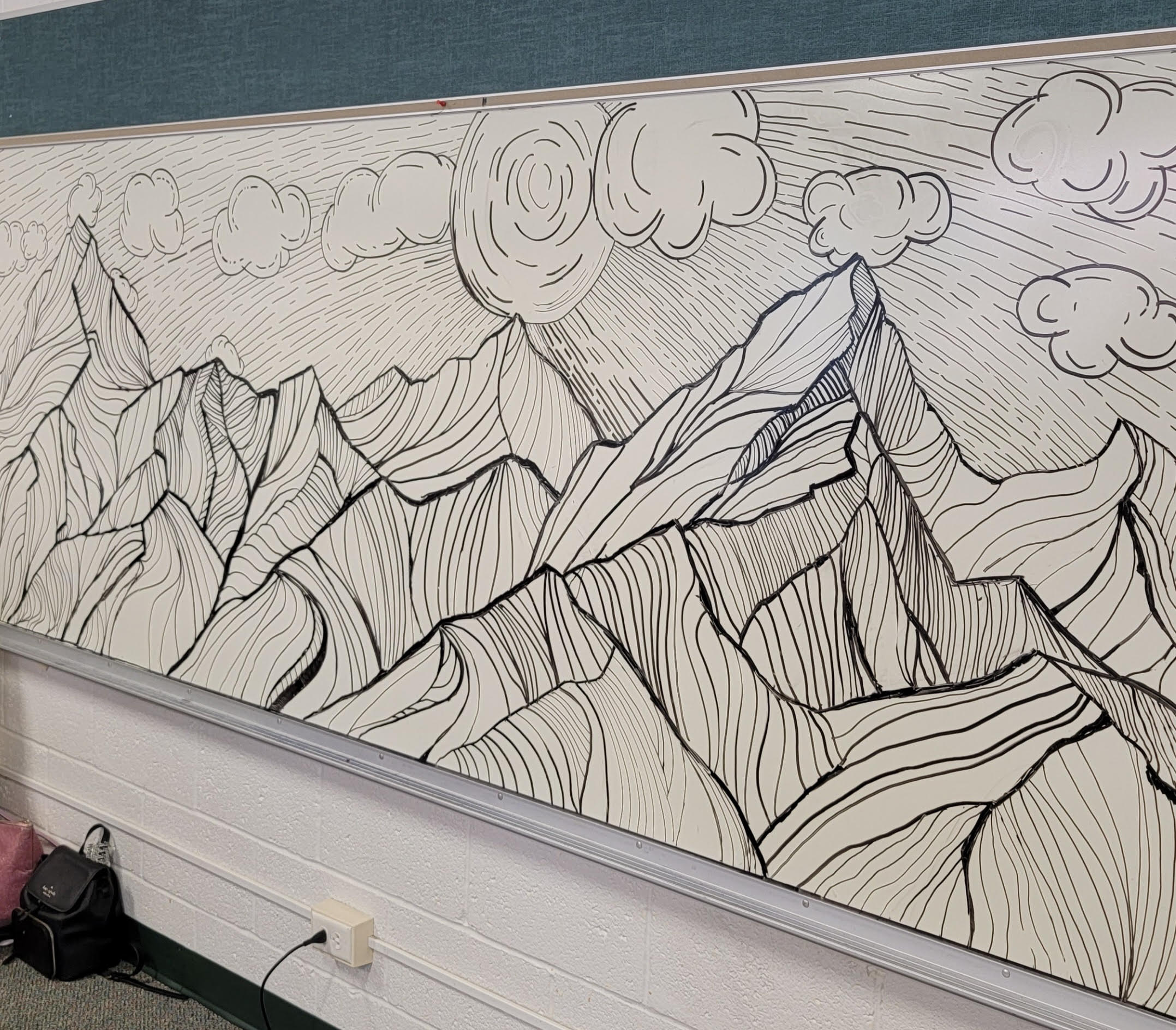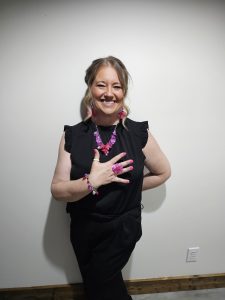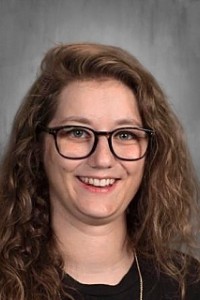From burnout to breakthrough: I-SEAL’s impact on two very special educators

A student created this whiteboard in Shannon Sporleder’s classroom because she “moves mountains for her students”
You might not think North Vernon and Carmel, Indiana, have much in common. One is a small town of about 6,500 people, the other a city with more than 100,000 residents. Carmel High School has nearly as many students as North Vernon’s total population. Nestled within Indiana’s most affluent county, Carmel is home to professional athletes and Fortune 500 CEOs. The city boasts palatial buildings, the country’s most roadway roundabouts, and a booming business economy. North Vernon, tucked among the rolling hills of rural Jennings County, bills itself as a spot “where the pavement ends and nature begins.”
Yet despite their countless differences, these two places have one important thing in common: growing student populations with special education needs. They also share something else. Dedicated teachers like Shannon Sporleder and Mallory Garrett, who have taken advantage of special education training to better support these local students. CELL’s Indiana Special Education Assisted Licensure (I-SEAL) initiative made it possible.

Shannon Sporleder: From Bus Driver to Special Education Advocate
Sporleder started her journey toward special education as a bus driver for Jennings County School Corporation. When budget cuts eliminated her route, she pivoted to a pre-vocational education position, leveraging her Commercial Driver’s License to transport students. Her connection with the kids was undeniable. A lead special education teacher saw the potential immediately and said, “You’d be perfect for this job when I retire.”
Sporleder enrolled in Indiana Wesleyan University’s Transition to Teaching Certificate program. She juggled managing coursework with teaching, operating a local farm, and parenting three young children, all while maintaining an almost perfect GPA. Then, she found out about the newly launched I-SEAL initiative and applied. She still remembers receiving the email that the remainder of her coursework would be fully funded through I-SEAL.
“This cannot be happening,” she thought. Less than two years later, Sporleder completed the requirements to become a licensed special education teacher.
Sporleder now works at the Jennings County Educational Center leading the Fresh Start program. She serves high school students with Individualized Education Programs (IEPs), 504 Plans, and mothers-to-be at risk of dropping out. A higher graduation rate, improved credit attainment, and better life skills show Shannon’s impact on her 33 students.
“Everything I do, I refer back to my coursework,” she said.
Teaching while taking classes allowed Shannon to apply her learning in real time. “Everything became an aha moment.” From differentiated instructional strategies to Universal Design for Learning, Shannon used it all—and encouraged her fellow teachers to do the same.
“Students don’t have to have a disability to not understand something or need a different way to learn,” she said.
Shannon’s motto is “you be you,” a phrase she uses with herself and students. She credits IWU’s Transition to Teaching program, and the encouragement of her colleagues, with giving her the confidence to become a special educator. Now she uses those skills to help students—of all abilities—embrace their unique selves as well.

Mallory Garrett: Should I Stay or Should I Go?
“This fits into my schedule without a lot of added stress.” – Mallory Garrett
As a self-proclaimed “history dork,” Garrett taught social studies for four years at Carmel High School and three years at another district. Yet she felt a nagging pull to make a greater impact. The district’s five special education openings and colleagues from the department saying “you should be one of us” served as the nudge she needed. It was time to make a move.
But change is hard. So is going back to school. Garrett considered leaving education altogether.
“To be honest, burnout was hitting me hard before I made the switch,” she said. “The COVID years were crazy and I knew I couldn’t do another year like that again.
“I’d always considered moving to special education. But when you say, ‘I’m going from social studies to becoming an emotional disabilities teacher,’ people respond with ‘Yeah, that will help your burnout.’ I started to look for things outside of teaching, but my wife said, ‘You will always wonder what if.’”
Garrett enrolled at the University of Indianapolis in August 2023 to get her special education license with full tuition covered by I-SEAL. Despite initial fears about managing the additional workload, she found the program’s design accommodating and flexible. The online, project-based coursework fit seamlessly into her busy schedule.
“I can’t speak highly enough of the people leading these classes. They get that we are furthering our education while working full-time demanding jobs and having lives. This fits into my schedule without a lot of added stress,” she said.
Garrett now serves as a resource teacher, working with students who have emotional disabilities. She laughs when describing her classroom as sometimes like “juggling fire.” But Garrett credits the value of her UIndy coursework in creating an effective learning environment. The program’s real-world tools and resources are something she uses in her job every day. From writing IEPs, designing behavior intervention plans, and implementing high-leverage practices (HLPs), her coursework has expanded her teaching skills.
As for the doubters, including herself, who weren’t sure leaving a general education classroom was the right move? “Changing to special education is going to keep me in this profession 100%,” she said. “As teachers, we want to know we are making a difference. Now I can clearly see that my job is paying off for kids.”
I-SEAL: Funding Education, Impact, and Improved Student Outcomes
For anyone feeling the need to make a professional change, Sporleder and Garrett’s stories are a call to action. I-SEAL isn’t just a program. It’s an educational game-changer.
I-SEAL funds graduate courses for full licensure in special education for teachers in other subject areas, non-education bachelor’s degree holders, and those needing to take the state licensing exam. Participants receive the training, support, and financial backing to meet one of Hoosier students’ greatest needs: highly skilled, highly qualified special education teachers.
“A lot of people feel they need to change some aspect of the job or how they are teaching. I-SEAL is a great opportunity to do that to help more kids. It removes all the barriers that keep people from going back to school or making a switch that really matters to students. I cannot recommend it highly enough,” Garrett said.
Sporleder feels the same way. In fact, she was even helping enroll colleagues while dancing at the local prom. She tells people, “You need to try this. It’s changed my life and I know it is improving our student’s lives too!”
—
I-SEAL is offered by the Center of Excellence in Leadership of Learning (CELL) at the University of Indianapolis in partnership with the Indiana Department of Education. Interested in learning more and exploring special education teacher licensure at no financial cost to you? Learn more at https://IndianaSEAL.org.
